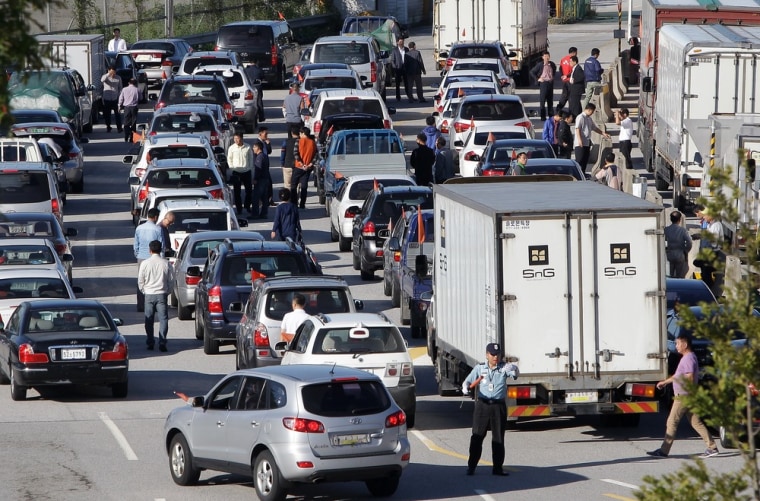
Suggesting the frost between North and South Korea may begin to thaw, South Korean managers were preparing to return to reopened factories just north of the Demilitarized Zone to partner with North Korean workers and test-run idle assembly lines.
It comes nearly five months after the North closed the border and withdrew thousands of its workers from the jointly-run factory complex during a particularly icy period in intergovernmental relations that started with the North's third nuclear test Feb. 12.
Dozens of cars, trucks and factory managers were crossing the border shortly after 8:30 a.m. local time, making their way to the Kaesong complex just north of the Demilitarized Zone separating the two countries.
South Korean businessmen Monday were heartened by improving ties but also concerned about whether they can compensate for the millions of dollars lost since Pyongyang pulled out some 53,000 workers in April, according to the Associated Press.
Some were worried about the possibility that the countries could fall into another cycle of recriminations and threats.
"Honestly, I still feel a bit nervous, because you never know whether the North while change its mind in the future," an unidentified textile company manager told the French news agency AFP.
The manager added: "Who knows if a crisis like this won't happen again?"
Some 800 South Koreans were expected to cross the border to the complex Monday, according to the BBC.
Any evidence of friendliness between the Koreas marks a significant counterpoint to recent tensions.
Earlier this year, the North threatened preemptive nuclear strikes in the Asia-Pacific region and the U.S., raising the ire of officials in the West and alienating their neighbor to the south.
The Kaesong complex was founded in 2004 and was widely seen as a test case for reunification because it married South Korean technology with North Korean labor, according to the AP.
It is also a major source of revenue for Pyongyang, employing upwards of 50,000 North Koreans.
The countries agree to reopen the factories in August after a series of talks, in which they agreed to a five-point accord that opens the complex up to foreign investments and makes it more difficult for the North to unilaterally shutter it again.
Pyongyang officials have said the country's anger was due to yearly military drills between Seoul and Washington as well as alleged insults against its key leadership.
Related:
The Associated Press contributed to this report.